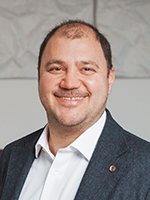Academic interests
I have been fascinated by the statistical hypothesis for language (SHL), namely the proposal that all human languages can be characterized by a rich latent statistical structure at any level of analysis.
If this hypothesis is largely correct, what types of basic computational machinery does the mind use to learn and process language?
Other questions are pertinent and far from obvious: Is individual variation in language learning related to the capacity to extract statistics from the language environment? Do parents and caregivers implicitly adapt the statistics of their speech to maximize language learning? Do learning mechanisms, in turn, adapt to the rich diversity of statistical properties of different languages? Can SHL explain patterns of learnability, e.g. why certain properties appear to be unlearnable, either by children and/or by adults? And beyond, can the social structure in which learners and speakers are embedded alter the statistics of language interaction, and what does it mean for language acquisition and change? Finally, a good theory must be able to be proven wrong. What are the constraints on SHL?
Courses taught
- MULTI4100 – Theoretical Foundations of Multilingualism
- MULTI4120 – Cognitive Aspects of Multilingualism
- MULTI4150 – Project-based Research in Multilingualism
- ILN4950 – Research project semester for Linguistics and Scandinavian Studies
- MULTI4190 – MA thesis group supervision
- MULTI4170 – Multilingualism Specialisation B
- LING4140 – Linguistic Method
- Philosophy of science for PhD students in linguistics
Background and CV
I hold an M.A. in Translation Studies from the University of Bologna, Italy, and a Ph.D. in Psychology from the University of Warwick, UK. I was a Research Associate at Cornell University, and held teaching positions at the University of Hawaii, USA, Nanyang Technological University Singapore, and the University of Genoa, Italy.
I obtained research grants from the European Research Council (ERC), the U.S. National Institutes of Health, and the Singapore National Research Foundation, for a total of 6M Euros. I serve on the editorial board of the Journal of Cultural Cognitive Science. A full Curriculum Vitae is available here.
Research collaborations
Active collaborations include the Max-Planck Institute for Psycholinguistics, Nijmegen; the National Institutes of Education (NIE), and Nanyang Technological University, Singapore; the University of Genova, Italy; the University of California, Merced.
Other projects
My wife and I have two ongoing life-long projects that keep us busy and proud:
Ang, WX, & Onnis, L (2017) The ELISA life-long project. Life.
Ang, WX, & Onnis, L (2020) The ESTHER life-long project. Life.
